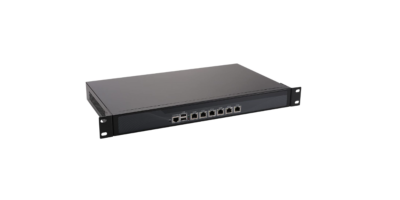With the increasing use of technology in healthcare, securing patient data has become a top priority for healthcare organizations. In order to meet regulatory requirements and protect sensitive information, it is crucial for these organizations to have robust security measures in place. Microsoft 365 offers a variety of security features that are specifically designed for the healthcare industry. In this article, we will discuss the top Microsoft 365 security features that every healthcare organization should use.
Enhancing Healthcare Security: Essential Microsoft 365 Security Features
Microsoft 365 offers a comprehensive suite of tools and features that can help healthcare organizations safeguard their data and stay compliant with regulations. Here are some of the essential security features that every healthcare organization should use:
1. Advanced Threat Protection (ATP)
Microsoft 365 Security’s Advanced Threat Protection is a comprehensive solution that helps healthcare organizations defend against sophisticated cyber threats. ATP employs advanced analytics and machine learning algorithms to detect and mitigate malicious activities, including phishing attacks, malware, and ransomware. By proactively identifying and neutralizing threats, ATP enhances the security posture of healthcare organizations, minimizing the risk of data breaches.
2. Data Loss Prevention (DLP)
Protecting sensitive patient information is a top priority for healthcare organizations. Microsoft 365 Security’s Data Loss Prevention feature enables organizations to define policies that prevent the unauthorized sharing or leakage of sensitive data. By automatically scanning emails, documents, and other content for sensitive information such as patient records or personally identifiable information (PII), DLP helps healthcare organizations maintain compliance with regulatory requirements while safeguarding patient confidentiality.
3. Identity and Access Management (IAM)
Ensuring secure access to healthcare systems and applications is critical for maintaining the integrity of patient data. Microsoft 365 Security’s Identity and Access Management capabilities provide healthcare organizations with granular control over user access rights and permissions. By implementing multi-factor authentication (MFA), role-based access controls (RBAC), and privileged identity management (PIM), organizations can prevent unauthorized access and strengthen their overall security posture.
4. Microsoft Defender for Endpoint
As healthcare organizations increasingly embrace remote work and telehealth services, securing endpoint devices becomes essential. Microsoft Defender for Endpoint is an endpoint security solution that helps protect devices against advanced threats, including zero-day exploits and fileless attacks. By leveraging behavioral analytics and real-time threat intelligence, Defender for Endpoint detects and responds to security incidents across a wide range of endpoints, including desktops, laptops, and mobile devices.
5. Encryption
Encrypting sensitive data at rest and in transit is a fundamental aspect of data security. Microsoft 365 Security offers robust encryption capabilities that help healthcare organizations protect their data from unauthorized access. With features such as BitLocker drive encryption and Transport Layer Security (TLS), organizations can encrypt data both locally and during transmission, ensuring that patient information remains secure at all times.
6. Security and Compliance Center
Managing security and compliance requirements can be challenging for healthcare organizations, given the complexity of regulatory frameworks such as HIPAA and GDPR. Microsoft 365 Security’s Security and Compliance Center provides a centralized hub for managing security policies, conducting risk assessments, and ensuring regulatory compliance. By streamlining security management tasks and providing actionable insights, the Security and Compliance Center helps healthcare organizations maintain a robust security posture while meeting regulatory requirements.
7. Threat Intelligence
Staying informed about emerging cyber threats is essential for healthcare organizations seeking to protect their data. Microsoft 365 Security’s Threat Intelligence capabilities provide organizations with real-time insights into the latest cyber threats and vulnerabilities. By aggregating threat data from various sources and leveraging AI-driven analytics, Threat Intelligence helps organizations proactively identify and mitigate security risks, enabling them to stay one step ahead of cyber attackers.
8. Mobile Device Management (MDM)
With the proliferation of mobile devices in healthcare settings, ensuring the security of these devices is crucial. Microsoft 365 Security’s Mobile Device Management feature enables organizations to enforce security policies and controls across a diverse range of mobile devices, including smartphones and tablets. By implementing features such as device encryption, remote wipe, and app whitelisting, MDM helps organizations protect sensitive data while facilitating secure mobile productivity.
9. Audit Logging and Reporting
Maintaining visibility into security events and activities is essential for healthcare organizations to identify and respond to potential threats effectively. Microsoft 365 Security’s audit logging and reporting capabilities provide organizations with detailed insights into user activities, security events, and compliance violations. By generating comprehensive audit logs and customizable reports, organizations can monitor their security posture, track user behavior, and demonstrate compliance with regulatory requirements.
10. Secure Collaboration Tools
Collaboration is essential for delivering high-quality patient care, but it also introduces security risks, particularly when sensitive information is shared electronically. Microsoft 365 Security offers a suite of secure collaboration tools, including Microsoft Teams and SharePoint, that enable healthcare organizations to collaborate effectively while protecting patient data. With features such as encrypted messaging, secure file sharing, and access controls, these tools help healthcare teams collaborate securely across different locations and devices.
Conclusion
In conclusion, Microsoft 365 security offers a comprehensive suite of features and capabilities designed to help healthcare organizations protect their sensitive data from cyber threats. By leveraging advanced threat protection, data loss prevention, identity and access management, and other security features, healthcare organizations can enhance their security posture, maintain regulatory compliance, and safeguard patient confidentiality. By prioritizing Microsoft 365 Security, healthcare organizations can mitigate the risk of data breaches and ensure the integrity and confidentiality of patient information.
At MedicalITG, we understand the unique security challenges that healthcare organizations face and are committed to helping our clients implement robust security solutions. Our HIPAA Compliant Microsoft 365 service offers top-notch data protection and compliance features to safeguard your sensitive information. Contact us today for more about our services. Call us on (877) 220-8774 or email at info@medicalitg.com.










